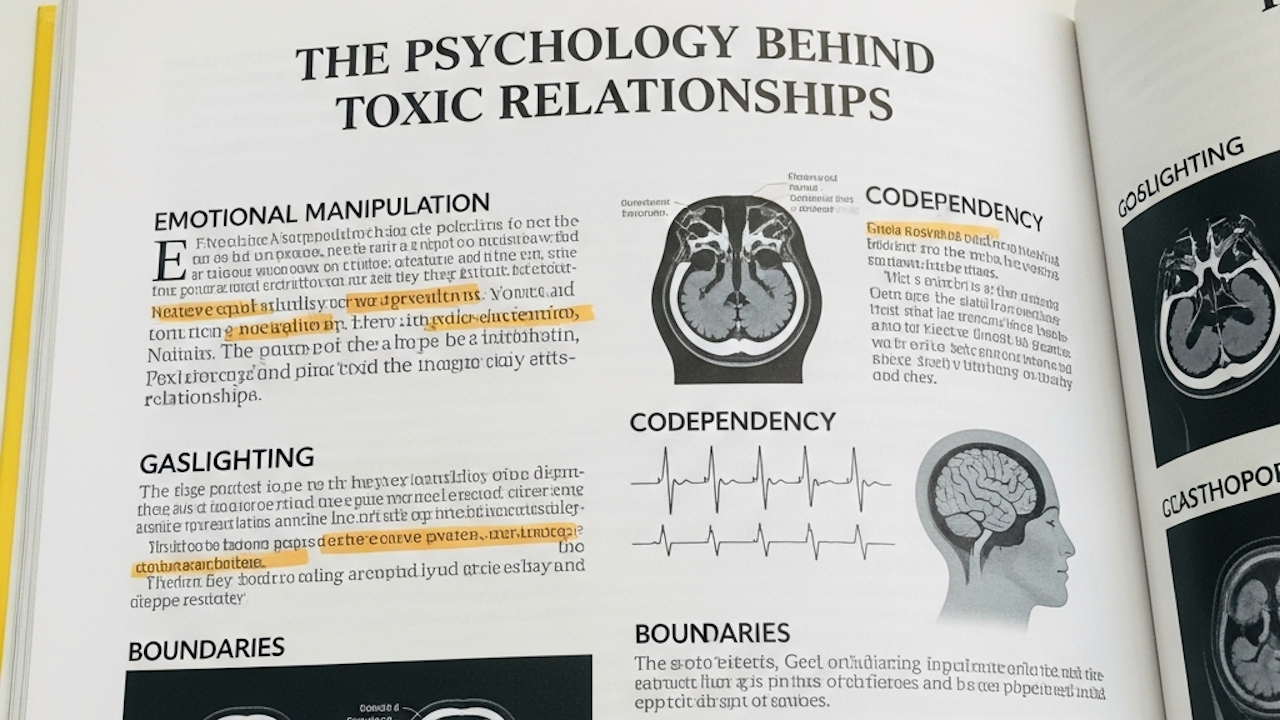The intricate dance of human relationships can sometimes devolve into patterns of toxicity, leaving individuals emotionally scarred and questioning their own sense of reality. Understanding the psychology behind these dynamics is crucial for recognizing and escaping their destructive grasp. Toxic relationships aren’t simply marked by occasional disagreements; they are characterized by a persistent and pervasive pattern of behaviors that undermine an individual’s self-worth and emotional well-being.
At the heart of many toxic relationships lies a fundamental imbalance of power. One individual, often driven by deep-seated insecurities or a need for control, seeks to dominate and manipulate the other. This control can manifest in various forms, from overt aggression to subtle emotional manipulation. The toxic partner may employ tactics like gaslighting, a form of psychological manipulation where they distort reality to make their partner question their own sanity. This insidious behavior erodes the victim’s sense of self, leaving them feeling confused and dependent.
The roots of such behavior often lie in early childhood experiences. Individuals who witnessed or experienced unhealthy relationship dynamics may unconsciously replicate those patterns in their adult lives. They may have learned that love is synonymous with control, or that their own needs are secondary to those of their partner. Furthermore, individuals with unresolved trauma or attachment issues may be more susceptible to entering and remaining in toxic relationships. The familiar, albeit painful, dynamic can feel strangely comforting, reinforcing a cycle of self-destructive behavior.
Another significant psychological factor is the role of intermittent reinforcement. This involves the toxic partner alternating between periods of kindness and cruelty, creating a cycle of hope and despair. The victim becomes addicted to the fleeting moments of positive reinforcement, clinging to the belief that their partner will change. This unpredictable pattern of behavior creates a sense of emotional dependence, making it difficult for the victim to break free.
Low self-esteem plays a critical role in perpetuating toxic relationships. Individuals who lack a strong sense of self-worth may tolerate abusive behavior, believing that they do not deserve better. They may rationalize their partner’s actions, blaming themselves for the problems in the relationship. The fear of being alone can also be a powerful motivator, leading individuals to stay in unhealthy relationships rather than facing the perceived terror of isolation.
Furthermore, the toxic partner often engages in projection, attributing their own negative traits and feelings to their partner. This can lead to constant criticism and blame, further eroding the victim’s self-esteem. The toxic partner may also isolate their victim from friends and family, creating a sense of dependence and limiting their support network. This isolation makes it even more difficult for the victim to recognize the toxicity of the relationship and seek help.
The psychological impact of toxic relationships can be devastating. Victims may experience chronic anxiety, depression, and post-traumatic stress disorder. They may struggle with feelings of guilt, shame, and self-doubt. The constant emotional turmoil can also lead to physical health problems, such as sleep disturbances, headaches, and digestive issues.
Breaking free from a toxic relationship requires immense courage and self-awareness. It involves recognizing the unhealthy patterns of behavior, setting firm boundaries, and seeking support from trusted friends, family, or mental health professionals. Healing from the psychological wounds of a toxic relationship is a process that requires time, patience, and self-compassion. It is a journey of reclaiming one’s sense of self and building healthy, fulfilling relationships.


